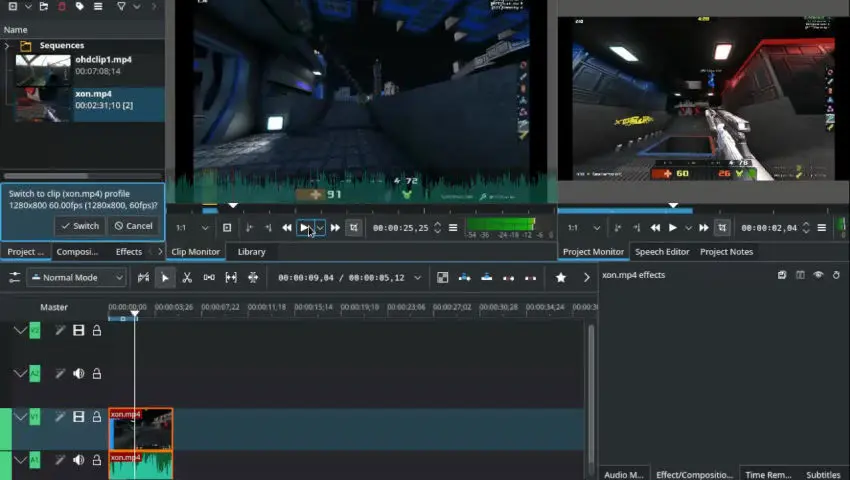Any program can be added to steam by putting the Steam Deck into Desktop Mode (hold power button and select Desktop Mode), finding the app in the start menu Right clicking and selecting “add to steam” from the menu. Remember the “game” added to steam will have its own separate controller profile, choose keyboard and mouse template for desktop programs and adjust as needed.
Kdenlive is a video editor that can be downloaded by opening the Discover package manager in desktop mode and selecting to install the program.
Why do this? Well, with Decky Loader plugin Decky Recorder you can record clips of gameplay in Gaming Mode with the Steam Deck. The default file location is /home/deck/Videos/. There isn’t necessarily an easy way to view videos in Gaming Mode on the Steam Deck however, which means the next step of reviewing the footage you took while playing the game requires you to exit into Desktop Mode and open a video player like VNC.
Fine, but… I actually think I like this workflow better, add Kdenlive to steam so you can launch it in Gaming Mode and then create a layout inside Kdenlive (I called it “browse” in demo video) that just has the “media browser”, “clip monitor” and “transport” selected. This is your video player to review the clips you record, now you can switch to the “editing” layout (layouts are in top right of screen in Kdenlive) and directly transition to video editing without ever leaving Gaming Mode.
This video is a (clumsy) demonstration of using Kdenlive in Gaming Mode to make a video.



Because while the whole reason I got the steam deck was that it has the capacity to function as a normal linux desktop, desktop UIs are terribly designed for anything other than mouse and keyboard and a nice big monitor.
Being able to launch Kdenlive in Gaming Mode makes the process of viewing and editing gameplay footage feel like a natural next step to playing the games and getting the footage. It doesn’t feel fiddly and obtuse like switching to Desktop Mode every time you want to browse the videos you recorded.
Also Kdenlive has a good full screen mode that is a really nice natural fit for Gaming Mode on the Steam Deck.
Another reason, when you add a game or program to steam so you can launch it in Gaming Mode, steam creates an associated Controller profile for that program. This is a natural place to create a custom control scheme for an in-depth technical software like a video editor, where you can tweak what the steam deck’s controls are mapped to without worrying about how it is going to mess with navigating around the desktop. Need to bind a hot key for a feature you are using in Kdenlive? When you are in Gaming Mode you can just bind it in the controller menu to whatever is most natural in the context of using that program.
Ok lol one more, the way in which the Steam Deck is able to suspend programs in Gaming Mode is really useful for helping desktop software behave in an environment where you repeatedly put the Steam Deck into sleep mode and wake it back up when using it in on the couch or in the kitchen or some other context where you are switching between tasks frequently. Being able to hit “pause” on a program is actually a great way to keep janky shit from happening when rapidly waking up the steam deck from sleep mode and sending it right back into it almost immediately without causing issues for a complex involved desktop software like Kdenlive.
Ok,the suspension is actually a big deal.I noticed that in desktop mode it usually closes my open files in GIMP and others when I suspend. Not that I wouldn’t save everything first anyway, but good to know.
It really is something that when I finally can afford a nice gaming computer that I think I will miss, the ability to pause the reality a program resides in rather than have to rely on an internal capability of the program to pause without crashing is incredibly useful in my opinion. (I know you can do this with virtual environments on a pc, but it is part of the core experience of using a Steam Deck).
It gets all fucked up when games or apps require always online functionality… grrrr… but that isn’t the Steam Deck’s fault.